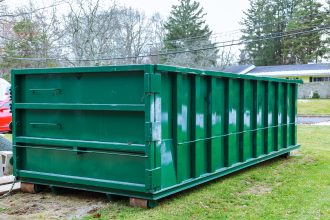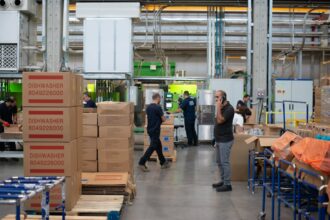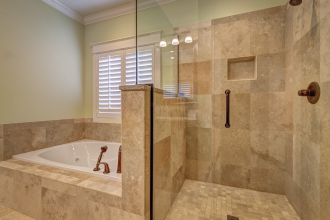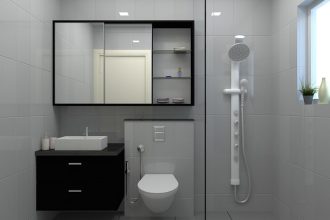Vinyl plank flooring has gained popularity in recent years as a durable and affordable option for homeowners who want the look of hardwood flooring without the high cost. However, one of the most common questions people have when considering vinyl plank flooring is how long it will last. In this article, we will take a closer look at the lifespan of vinyl plank flooring and what factors can affect its durability.
What Is Vinyl Plank Flooring?
Vinyl plank flooring is a type of synthetic flooring that mimics the look and feel of hardwood or stone flooring. It is made of several layers of materials, including a PVC backing layer, a printed design layer, and a clear wear layer that provides protection against scratches and stains.
The thickness of the wear layer is one of the most important factors that determine the durability of the flooring. When choosing vinyl plank flooring Honolulu, HI, it’s crucial to take this factor into account. Thicker wear layers offer better protection against wear and tear, and they can extend the lifespan of the flooring.
There are several types of vinyl plank flooring available on the market. Here are some of the most common ones:
- Luxury Vinyl Plank (LVP): LVP is a premium type of vinyl plank flooring that typically has a thicker wear layer, a more realistic design, and a higher price point. It can mimic the look of hardwood, stone, or tile flooring, and is often used in high-end residential and commercial spaces.
- Waterproof Vinyl Plank (WVP): WVP is designed to be completely waterproof, which makes it an excellent choice for areas that are prone to moisture, such as basements, bathrooms, and kitchens. It is often made with a rigid core that provides additional stability and durability.
- Engineered Vinyl Plank (EVP): EVP is a hybrid option that combines the durability of vinyl with the natural look of hardwood. It typically has a rigid core and a thicker wear layer that makes it more resistant to scratches and wear.
- Loose Lay Vinyl Plank: Loose lay options do not require adhesive or locking mechanisms for installation, which makes them a quick and easy option for DIY installations. They are typically made with a heavy backing layer that helps them stay in place without shifting or sliding.
- Peel and Stick Vinyl Plank: Peel and stick design is another DIY-friendly option that is easy to install without the need for adhesives. It is typically thinner than other types, which makes it less durable but more affordable.
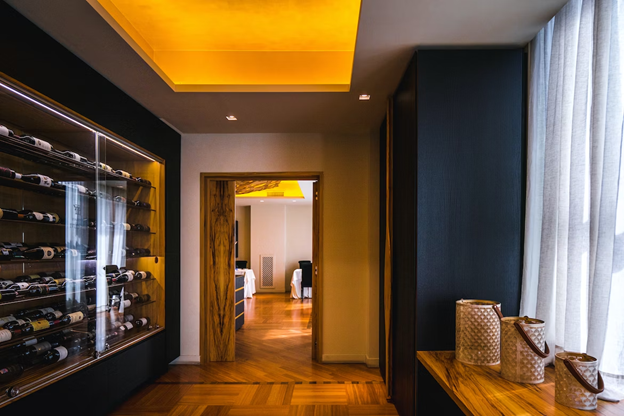
Vinyl Flooring Lifespan
On average, this type of floor material can last anywhere from 10 to 20 years, depending on the quality of the product, the level of foot traffic, and the maintenance routine. Higher-quality options with thicker wear layers can last up to 25 years, while lower-quality products with thinner wear layers may only last 5 to 10 years.
The level of foot traffic in a particular area can also affect the lifespan of the product. High-traffic areas like hallways, entryways, and kitchens will wear down the flooring more quickly than low-traffic areas like bedrooms or guest rooms. If you have pets or young children who are constantly running around, you may need to replace the flooring sooner than if you live alone or with older adults.
Another factor that can impact the lifespan of this product is the maintenance routine. Regular cleaning and maintenance can help prolong the life of the flooring by preventing scratches and stains. Sweeping or vacuuming the floor regularly can help remove dirt and debris that can cause scratches or damage to the wear layer. Wiping up spills and stains immediately can also prevent the floor from being stained or discolored.
In addition to regular cleaning and maintenance, there are a few other steps you can take to extend the lifespan of your floor. Adding felt pads to the bottom of furniture legs can help prevent scratches and dents. Using rugs or runners in high-traffic areas can also help protect it from wear and tear. And if you are planning to move furniture or heavy objects across the floor, be sure to use a dolly or furniture slider.
Final Say
In conclusion, the lifespan of vinyl plank flooring can vary depending on the quality of the product, the level of foot traffic, and the maintenance routine. With proper care and maintenance, it can last anywhere from 10 to 20 years or more.










